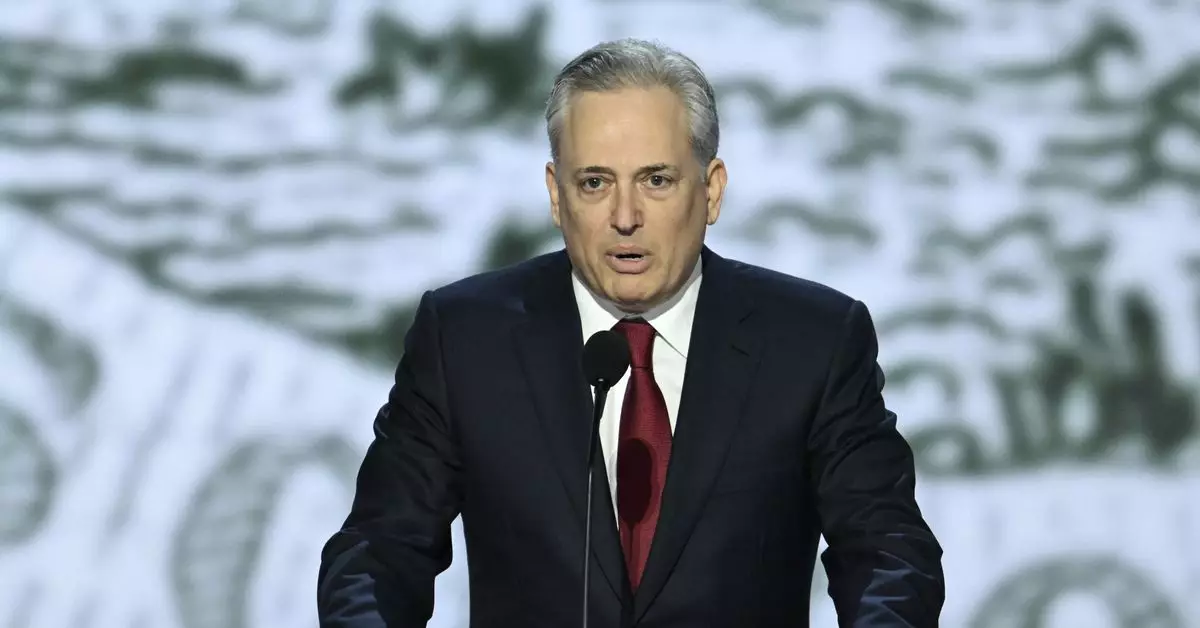The appointment of David Sacks as the White House AI and Crypto Czar under President-elect Donald Trump represents a significant shift in how the United States perceives and integrates technology into its governance. Sacks, a notable figure from the PayPal Mafia, comes in with a robust background that not only highlights his entrepreneurial spirit but also positions him as an influential player in the evolving landscape of artificial intelligence (AI) and cryptocurrency.
Sacks’ previous experience includes a pivotal role in creating platforms that have shaped digital communication and finance. By choosing him for this role, the Trump administration is sending a clear message about the importance of technology in future policy-making. The new administration sees AI and cryptocurrency not just as emerging sectors but as essential components for maintaining American competitiveness on the global stage.
Challenges and Responsibilities Ahead
Sacks’ responsibilities will encompass a broad spectrum of critical tasks designed to guide policy decisions. The focus is on ensuring that the U.S. remains at the forefront of innovation and technology. As articulated by Trump, the overarching mandate includes emphasizing free speech online and combating perceived biases in big tech. This approach reflects growing concerns among many citizens about the influence of major tech corporations in shaping public discourse.
Furthermore, Sacks will aim to formulate a legal framework for the crypto industry, which has seen unnecessary hurdles and regulatory ambiguity. Establishing clarity will be vital not only for companies operating within this space but also for innovators who seek to leverage blockchain technology to revolutionize various sectors of the economy. The complexity of the crypto landscape requires expertise, and Sacks’ appointment may signal a willingness from the government to understand and embrace new tech rather than resist it.
The Implications of a Special Government Employee
David Sacks will work as a “special government employee,” allowing him the flexibility to serve without the requirement to divest assets or disclose them publicly. This arrangement is controversial; while it promotes expertise in government advisory roles, it raises ethical questions about conflicts of interest, especially in fields as lucrative and volatile as AI and cryptocurrency. The duality of preserving innovation while avoiding corruption will be a constant balancing act for Sacks and the administration at large.
As he steps into this crucial position, Sacks will also leverage his role within the Presidential Council of Advisors for Science and Technology to further advocate for strategic technological initiatives. This advisory body holds significant power in shaping national tech policies. His success in imparting meaningful strategies will have lasting consequences for how the U.S. navigates the challenges posed by both domestic and international tech developments.
David Sacks’ ascent to this influential role is emblematic of the increasing intertwining of technology with political structures. His task is daunting, but it presents an opportunity for America to reestablish itself as a leader in sectors that are poignant to the modern economy. It remains to be seen how effective Sacks will be in promoting policies that enhance innovation while safeguarding citizens’ interests and rights. As stakeholders in technology and finance hold their breath, the upcoming years could define the trajectory of AI and cryptocurrency in America, potentially influencing regulatory landscapes for years to come.

